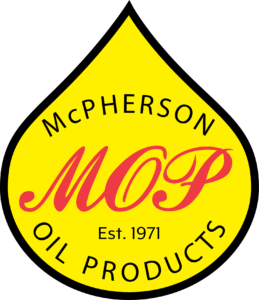Tops Tips for Managing Fleet Maintenance
15 Feb 2019, Posted by in General
Businesses that rely on transportation must undertake a range of operations to ensure optimum fleet management. The tasks involved in the care of corporate vehicles includes an exhaustive list of vehicle and driver related checks; from vehicle telematics, financing, and maintenance, to driver, speed, fuel, and health and safety management.
It is imperative for such businesses to minimize and ideally, mitigate any potential risks to their investment. Taking care of your fleet while complying with government standards, can lead to higher efficiency and productivity with a long-term benefit of reduced expenses. While fleet management can be undertaken by the business itself, in the 21st century it is simply wasteful to hire and allocate separate resources for a division that can be effectively outsourced.
However, there are many tactics that can be employed by fleet managers to help streamline their job. Below we mention a few of the top tips for managing fleet maintenance that are more than applicable.
Invest in a Maintenance Specialist
Being proactive with inspections extends the life of the vehicle, making it cost effective in the long run. Although drivers must provide daily updates on performance, the inspection of the vehicle should lay in the hands of professionals.
A deteriorating braking system, the wrong tread depth of tires, or a lack of air in tires that negatively impacts decelerating abilities can impede maneuverability and braking – resulting in crashes for larger vehicles such as trucks.
Investing in a maintenance specialist highlights grave issues in the vehicle. They conduct an in-depth analysis, bringing to the surface issues before a breakdown occurs. Hence, it is important to consider allocating a budget specifically for their inspections.
Having a maintenance specialist onboard additionally sets an efficient maintenance schedule that cannot be postponed or delayed. Timely checks conducted on the braking system and the engine of the vehicle keeps its functionality at optimal levels at all times.
Use Apps & Software for Real time alerts
As technology integrates itself with other industries, so it has in fleet management. Now, more and more software is catering towards the better maintenance of fleets. Some of the recent technological updates making waves in the industry are:
Customized Alerts Apps
Apps assist in examining the fleet or individual vehicles for defects. Different parts of the vehicle may be inspected against a checklist built into the app.
The results are compared and specific alerts on the maintenance are updated through the app. Users can also benefit from the analysis provided on the health trends of the vehicles allowing for the effective management of defective parts.
Geofencing
Geofencing software creates a virtual boundary, and sounds alerts when the fleet enters or exits a specific geographical location.
This allows businesses to go green and paperless, saving on costs. The auto notifications provide real time updates on employees’ locations and whether they are on schedule or not.
Telematics
Telematics is an industry specific technology that uses sensors and GPS technology to monitor the delivery time, and track the fleet while in transit. It lowers idling time, saving on fuel and maintenance costs.
Employ GPS Tracking Technology
GPS tracking enables better management of the staff and a convenient measurement of their performance. This technology is integrated with smart applications to allow accurate real-time locations of the truckers.
GPS aids in sticking to schedules by providing data on where your fleet is at all times. It is useful in successfully planning routes and gaining current updates on traffic conditions. It also provides an analysis of past routes and performance of each employee.
Focus On Drivers’ Health
The health of your drivers has a direct impact on the turnover rate and bottom-line of your business. Exhausted and overworked drivers find focusing on work challenging, resulting in job dissatisfaction and mishaps.
Most drivers stay in sedentary positions for hours at length, which poorly impacts blood circulation and the overall health. All these mental and physical ill effects can be controlled by bringing attention to the driver’s health.
Provide the truckers with reasons to exert themselves physically by setting up on-site gyms or by providing access to fitness centers. You can also conduct drug tests to ensure they are in optimal condition to safely carry a heavy workload.
Delegating Through Training
Having drivers share the responsibility of maintaining the fleet reduces the chances of a breakdown even further. As the person behind its wheel for hours every day, no one can know a vehicle better than its driver.
By incorporating employees in the process, there is a heightened sense of responsibility and safety while maintenance costs reduce in the long run. Train the drivers on essential fleet management checkups and procedures to measure their effectiveness in handling emergency procedures.
Preparing them to tackle unfortunate situations such as leaks, flat tires, oil changes using recycled oil, tire rotations, fluid fill-ups, and accidents is crucial and keeps the fleet on track and on schedule as the drivers can solve minor problems by themselves.
By being proactive and utilizing the expertise provided by trainings and professionals your fleet can stay ahead of its repair schedules and your business on track. You can simplify your fleet management process through the integration of new technology that helps streamline your logistics department.
